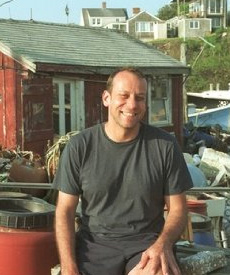gratuitment. book online now. You also can download comics, magazine and also books. Get online
today.
.
Renowned economist Nouriel Roubini electrified his profession and the larger financial community by predicting the current crisis well in advance of anyone else. Unlike most in his profession who treat economic disasters as freakish once-in-a-lifetime events without clear cause, Roubini, after decades of careful research around the world, realized that they were both probable and predictable. Armed with an unconventional blend of historical analysis and global economics, Roubini has forced politicians, policy makers, investors, and market watchers to face a long-neglected truth: financial systems are inherently fragile and prone to collapse.
Drawing on the parallels from many countries and centuries, Nouriel Roubini and Stephen Mihm, a professor of economic history and a
writer, show that financial cataclysms are as old and as ubiquitous as capitalism itself. The last two decades alone have witnessed comparable crises in countries as diverse as Mexico, Thailand, Brazil, Pakistan, and Argentina. All of these crises-not to mention the more sweeping cataclysms such as the Great Depression-have much in common with the current downturn. Bringing lessons of earlier episodes to bear on our present predicament, Roubini and Mihm show how we can recognize and grapple with the inherent instability of the global financial system, understand its pressure points, learn from previous episodes of "irrational exuberance," pinpoint the course of global contagion, and plan for our immediate future. Perhaps most important, the authors-considering theories, statistics, and mathematical models with the skepticism that recent history warrants—explain how the world's economy can get out of the mess we're in, and stay out.
In Roubini's shadow, economists and investors are increasingly realizing that they can no longer afford to consider crises the black swans of financial history. A vital and timeless book,
proves calamities to be not only predictable but also preventable and, with the right medicine, curable.
Ian Bremmer and Nouriel Roubini: Author One-to-One In this Amazon exclusive, we brought together authors Ian Bremmer and Nouriel Roubini and asked them to interview each other.
Ian Bremmer is the president of Eurasia Group, the world's leading global political risk research and consulting firm. He has written for
The Wall Street Journal, The Washington Post, Newsweek, Foreign Affairs, and other publications, and his books include
The End of the Free Market,
The J Curve, and
The Fat Tail. Read on to see Ian Bremmer's questions for Nouriel Roubini, or turn the tables to see what Roubini asked Bremmer.
 Bremmer
Bremmer: You argue in your book [
Crisis Economics: A Crash Course in the Future of Finance] that financial crises are not unpredictable “black swan” events but, rather, can be forecast – in effect, white swans. What do you mean by that?
Roubini: My friend Nassim Taleb popularized the concept of “Black Swans,” those economic and financial events that are sudden, unexpected and unpredictable. But if you look at financial crises through history – and the earliest is the Tulipmania in the Netherlands in the 17th Century – you see a pattern that is highly regular and predictable: An asset bubble – often in real estate or in stock markets or in a new industry – leads to financial euphoria, excessive risk taking, an accumulation of excessive debt and leverage. So the signposts of this phase — asset boom and bubble, followed by the eventual bust and crash — are highly predictable if one looks at the economic and financial indicators that show the build-up of such excesses. Thus, financial boom and bust are predictable white swan events, not unpredictable and random black swans. Financial crises have repeatedly occurred for hundreds of years and they follow quite regular pattern. That is why my book is about “crisis economics”, a phenomenon that is becoming more of a rule than an exception. Financial crises that should have occurred once in 100 years now occur more frequently and with greater virulence than in the past; and their economic, fiscal, financial and social costs are rising.
The trouble is that in the bubble phase nearly everyone, the exception being a few critical analysts, is swept in a delusional bubble mania of irrational euphoria: households, financial institutions, investors, governments, spinmeisters all of whom profit from the bubble, including Ponzi-schemers who concoct their houses of cards and financial con games. So, in each bubble there are cranks who argue that this time is different and that the bubble is driven by a fundamental brave new world of ever rising growth and profits. Then, when the boom and bubble turns into a bust and crash, a reality check occurs and financial depression sets in.
Bremmer: Who is to blame the most for the recent financial crisis? Who were the culprits of the latest one?
Roubini: The list of culprits is very long. The Fed kept interest rates too low for too long in the earlier part the past decade and fed — pun intended — the housing and credit bubble. Bankers and investors on Wall Street and in financial institutions were greedy, arrogant and reckless in their risk taking and build-up of leverage because they were compensated based on short term profits. As a result, they generated toxic loans – subprime mortgages and other mortgages and loans – that borrowers could not afford and then packaged these mortgages and loans into toxic securities – the entire alphabet soup of structured finance products, so-called “SIVs” like MBSs – Mortgage-Backed Securities, or CDOs – Collateralized Debt Obligations -- and even CDOs of CDOs. These were new, complex, exotic, non-transparent, non-traded, marked-to-model rather than market-to-market and mis-rated by the rating agencies. Indeed, the rating agencies were also culprits as they had massive conflicts of interest: they made most of their profits from mis-rating these new instruments and being paid handsomely by the issuers. Also, the regulators and supervisors were asleep at the wheel as the ideology in Washington for the last decade was one of laissez faire “Wild West” capitalism with little prudential regulation and supervision of banks and other financial institutions.
Bremmer: In the book you express concern that following the massive leveraging of the private sector there is now a massive re-leveraging of the public sector that will put the economic recovery at risk. Why such worries?
 Roubini
Roubini: The Great Recession of 2008-2009 was triggered by excessive debt accumulation and leverage on the part of households, financial institutions and even the corporate sector in many advanced economies. While there is much talk about de-leveraging as the crisis wanes, the reality is that private-sector debt ratios have stabilized at very high levels. By contrast, as a consequence of fiscal stimulus and socialization of part of the private sector’s losses, there is now a massive re-leveraging of the public sector. Deficits in excess of 10% of GDP can be found in many advanced economies, including America’s, and debt-to-GDP ratios are expected to rise sharply – in some cases doubling in the next few years.
Such balance-sheet crises have historically led to economic recoveries that are slow, anemic, and below-trend for many years. Sovereign-debt problems are another strong possibility, given the massive re-leveraging of the public sector. In countries that cannot issue debt in their own currency (traditionally emerging-market economies), or that issue debt in their own currency but cannot independently print money (as in the eurozone), unsustainable fiscal deficits often lead to a credit crisis, a sovereign default, or other coercive form of public-debt restructuring. In countries that borrow in their own currency and can monetize the public debt, a sovereign debt crisis is unlikely, but monetization of fiscal deficits can eventually lead to high inflation. And inflation is – like default – a capital levy on holders of public debt, as it reduces the real value of nominal liabilities at fixed interest rates.
Thus, the recent problems faced by Greece are only the tip of a sovereign-debt iceberg in many advanced economies (and a smaller number of emerging markets). Bond-market vigilantes already have taken aim at Greece, Spain, Portugal, the United Kingdom, Ireland, and Iceland, pushing government bond yields higher. Eventually they may take aim at other countries – even Japan and the United States – where fiscal policy is on an unsustainable path.
Bremmer: Should we then worry about the risk of a collapse of the European Monetary Union--the so-called “eurozone?”
Roubini: This is a serious and rising risk. The dilemma for Greece and the other fiscally challenge countries dubbed the PIIGS — that’s Portugal, Italy, Ireland, Greece, Spain — is that, whereas fiscal consolidation is necessary to prevent an unsustainable increase in the spread on sovereign bonds, the short-run effects of raising taxes and cutting government spending tend to cause economic contraction. This, too, complicates the public-debt dynamics and impedes the restoration of public-debt sustainability. Indeed, this was the trap faced by Argentina in 1998-2001, when needed fiscal contraction exacerbated recession and eventually led to default.
In countries like the eurozone members, a loss of external competitiveness, caused by tight monetary policy and a strong currency, erosion of long-term comparative advantage relative to emerging markets, and wage growth in excess of productivity growth, impose further constraints on the resumption of growth. If growth does not recover, the fiscal problems will worsen while making it more politically difficult to enact the painful reforms needed to restore competitiveness.
A vicious circle of public-finance deficits, current-account gaps, worsening external-debt dynamics, and stagnating growth can then set in. Eventually, this can lead to default on euro-zone members’ public and foreign debt, as well as exit from the monetary union by fragile economies unable to adjust and reform fast enough.
Provision of liquidity by an international lender of last resort – the European Central Bank, the IMF, or even a new European Monetary Fund – could prevent an illiquidity problem from turning into an insolvency problem. But if a country is effectively insolvent rather than just illiquid, such “bailouts” cannot prevent eventual default and devaluation (or exit from a monetary union) because the international lender of last resort eventually will stop financing an unsustainable debt dynamic, as occurred Argentina (and in Russia in 1998). Thus, the weakest links of the EMU – countries such as Greece may be eventually be forced to default and to exit the monetary union to regain their competitiveness and growth through a depreciation of their new national currency.
Bremmer: So how can we properly deal with the fallout of financial crises? How to properly reduce private and public debts?
Roubini: Cleaning up high private-sector debt and lowering public-debt ratios by growth alone is particularly hard if a balance-sheet crisis leads to an anemic recovery. And reducing debt ratios by saving more leads to the paradox of thrift: too fast an increase in savings deepens the recession and makes debt ratios even worse.
At the end of the day, resolving private-sector leverage problems by fully socializing private losses and re-leveraging the public sector is risky. At best, taxes will eventually be raised and spending cut, with a negative effect on growth; at worst, the outcome may be direct capital levies (default) or indirect ones (the inflation tax if large budget deficits are sharply monetized).
Unsustainable private-debt problems must be resolved by defaults, debt reductions, and conversion of debt into equity. If, instead, private debts are excessively socialized, the advanced economies will face a grim future: serious sustainability problems with their public, private, and foreign debt, together with crippled prospects for economic growth.
Bremmer: In the book you propose radical reforms of the system of regulation and supervision of banks and other financial institutions and criticize the more cosmetic reforms now considered by the US Congress and in other countries. Why the need for radical reform?
Roubini: If reforms will be cosmetic we will not prevent future asset and credit bubbles and we will experience new and more virulent crises. The currently proposed reforms of “too-big-to-fail” financial institutions are not sufficient: imposing higher capital levies on these firms and have a resolution regime for an orderly shutdown of large systemically important insolvent firms will not work. If a financial firm is too-big-to-fail it is just too big: it should be broken up to make it less systemically important. And in the heat of the next crisis using a resolution regime to close down too-big-to-fail firms will be very hard; thus, the temptation to bail them out again will be dominant.
Also, the modest Volcker Rule – that may not even be passed by Congress because of the banking lobbies power – does not go far enough. It correctly points out that banking institutions that have access to insured deposits and to the lender of last resort support of the Fed should not be allowed to engage into risky activities such as prop trading, hedge funds and private investments. But more needs to be done: we need to go back to the more radical separation between commercial and investment banking that the Glass Steagall Act had imposed. Repealing this Act was a mistake that led to excessive risk taking and leverage by both banks and non-bank financial institutions.
Finally, the government should regulate much more tightly toxic and dangerous over-the-counter derivative instruments; and compensation of bankers and traders should be subject to radical “clawbacks”: bonuses should not be paid outright but go into a fund and clawed back if the initial investments/trades turned out to be risky and money losing over time.
Bremmer: Have we learned the lessons from the last financial crisis or are we planting the seeds of the next one?
Roubini: I fear that we have not learned those lessons and that part of the policy response is now creating a new global asset bubble that will cause a bigger financial crisis in the next few years. For one thing, there is a lot of talk about better regulation an supervision of the financial system but the financial industry is back to business as usual – rebuilding leverage, engaging in prop trading and other risk behavior, compensating bankers and traders with indecent bonuses - and is lobbying against better regulation and supervision. Governments are talking about reforms but almost no one has implemented them.
In the meanwhile interest rates remain close to zero in most advanced economies and they are also very low in many overheating emerging markets. Also dollar funded carry trades are feeding asset bubbles globally. Thus, part of the sharp rise in risky asset prices since March 2009 is driven by a wall of liquidity chasing assets that are becoming overpriced: US and global equities, credit, oil and commodity prices, emerging markets asset prices. And if this bubble eventually gets out of hand the eventual bust could lead to another and bigger global financial crisis in the next two or three years.
(Photo of Nouriel Roubini © RGE Monitor)
.
complete books online for free. Reading
full free books online without downloading.
. You can also read and download new and old full E-Books. Enjoy and relax with full
Books Online.

 Bremmer: You argue in your book [Crisis Economics: A Crash Course in the Future of Finance] that financial crises are not unpredictable “black swan” events but, rather, can be forecast – in effect, white swans. What do you mean by that?
Bremmer: You argue in your book [Crisis Economics: A Crash Course in the Future of Finance] that financial crises are not unpredictable “black swan” events but, rather, can be forecast – in effect, white swans. What do you mean by that?  Roubini: The Great Recession of 2008-2009 was triggered by excessive debt accumulation and leverage on the part of households, financial institutions and even the corporate sector in many advanced economies. While there is much talk about de-leveraging as the crisis wanes, the reality is that private-sector debt ratios have stabilized at very high levels. By contrast, as a consequence of fiscal stimulus and socialization of part of the private sector’s losses, there is now a massive re-leveraging of the public sector. Deficits in excess of 10% of GDP can be found in many advanced economies, including America’s, and debt-to-GDP ratios are expected to rise sharply – in some cases doubling in the next few years.
Roubini: The Great Recession of 2008-2009 was triggered by excessive debt accumulation and leverage on the part of households, financial institutions and even the corporate sector in many advanced economies. While there is much talk about de-leveraging as the crisis wanes, the reality is that private-sector debt ratios have stabilized at very high levels. By contrast, as a consequence of fiscal stimulus and socialization of part of the private sector’s losses, there is now a massive re-leveraging of the public sector. Deficits in excess of 10% of GDP can be found in many advanced economies, including America’s, and debt-to-GDP ratios are expected to rise sharply – in some cases doubling in the next few years. 